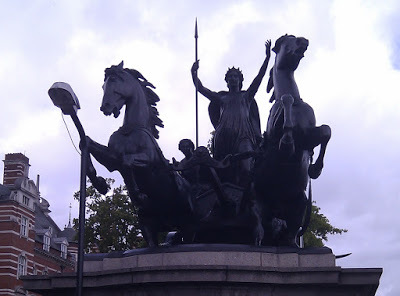What do you think?
Rate this book


592 pages, Paperback
First published January 1, 116
Posterity grants everybody the glory he is due.



Then, as his lingering death was very painful, he turned to Demetrius...

And so died Tiberius, in the seventy eighth year of his age. Nero was his father, and he was on both sides descended from the Claudian house, though his mother passed by adoption, first into the Livian, then into the Julian family. From earliest infancy, perilous vicissitudes were his lot. Himself an exile, he was the companion of a proscribed father, and on being admitted as a stepson into the house of Augustus, he had to struggle with many rivals, so long as Marcellus and Agrippa and, subsequently, Caius and Lucius Caesar were in their glory. Again his brother Drusus enjoyed in a greater degree the affection of the citizens. But he was more than ever on dangerous ground after his marriage with Julia, whether he tolerated or escaped from his wife's profligacy. On his return from Rhodes he ruled the emperor's now heirless house for twelve years, and the Roman world, with absolute sway, for about twenty-three. His character too had its distinct periods. It was a bright time in his life and reputation, while under Augustus he was a private citizen or held high offices; a time of reserve and crafty assumption of virtue, as long as Germanicus and Drusus were alive. Again, while his mother lived, he was a compound of good and evil; he was infamous for his cruelty, though he veiled his debaucheries, while he loved or feared Sejanus. Finally, he plunged into every wickedness and disgrace, when fear and shame being cast off, he simply indulged his own inclinations.
Besides, he [Nero] loved Poppaea more every day. While Agrippina lived, Poppaea saw no hope of his divorcing Octavia and marrying her. So she nagged and mocked him constantly. He was under his guardian's thumb, she said - master neither of the empire nor of himself. 'Otherwise,' she said, 'why these postponements of our marriage? I suppose my looks and victorious ancestors are not good enough. Or do you distrust my capacity to bear children? Or the sincerity of my love? No! I think you are afraid that, if we were married, I might tell you frankly how the senate is downtrodden and the public enraged by your mother's arrogance and greed. If Agrippina can only tolerate daughters-in-law who hate her son, let me be Otho's wife again! I will go anywhere in the world where I need only hear of the emperor's humiliations rather than see them - and see you in danger, like myself!'
Besides, he loved Poppaea more very day, who, seeing no hope, while Agrippina lived, of his divorcing Octavia and marrying her, nagged and mocked him constantly that he was under his guardian's thumb, saying he was master neither of the empire nor of himself, otherwise why these postponements of their marriage, or were her looks and victorious ancestors not good enough, or did he distrust her capacity to bear children, or the sincerity of her love, that, no, she thought he was afraid that, if they were married, she might tell him frankly how the senate was downtrodden and the public enraged by his mother's arrogance and greed, that if Agrippina could only tolerate daughters-in-law who hated her son, let her be Otho's wife again, and she would go anywhere in the world where she need only hear of the emperor's humiliations rather than see them - and him in danger like herself.
Much what I have related and shall have to relate, may perhaps, I am aware, seem petty trifles to record. But no one must compare my annals with the writings of those who have described Rome in old days. They told of great wars, of the storming of cities, of the defeat and capture of kings, or whenever they turned by preference to home affairs, they related, with a free scope for digression, the strifes of consuls with tribunes, land and corn-laws, and the struggles between the commons and the aristocracy. My labours are circumscribed and inglorious; peace wholly unbroken or but slightly disturbed, dismal misery in the capital, an emperor careless about the enlargement of the empire, such is my theme. Still it will not be useless to study those at first sight trifling events out of which the movements of vast changes often take their rise. pg. 94, Book IVOne has to admire his fidelity to his time. Seemingly without exaggeration nor bolstering, he records. Even without the defeat and capture of kings and cities, Tacitus’ Annals compellingly conveys the disintegration of Tiberius, the tragedy of Germanicus and the madness of Nero.